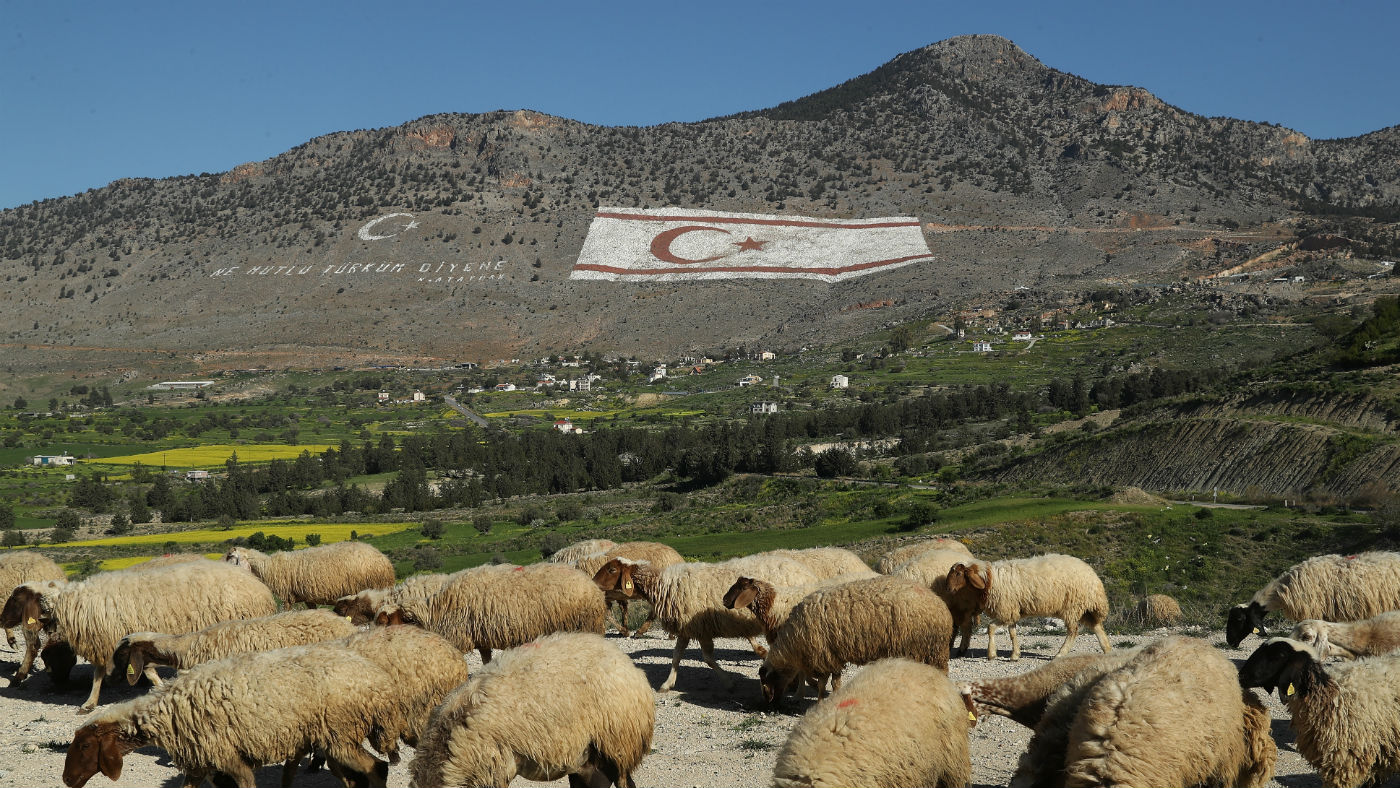Turkish opposition calls for Cyprus invasion
Tensions mounting over oil 44 years after the Mediterranean island was partitioned

A free daily email with the biggest news stories of the day – and the best features from TheWeek.com
You are now subscribed
Your newsletter sign-up was successful
One of Turkey’s leading opposition figures has caused alarm by calling for an invasion of Cyprus, 44 years after the Mediterranean island was partitioned.
To rapturous applause from Ankara’s parliament, Meral Aksener told lawmakers “Cyprus is Turkish and will remain Turkish”. She predicted that growing tension over a push to exploit oil and gas reserves in the eastern Mediterranean could lead to open war.
“You should know that if need be ‘Aishe will go on holiday again’,” warned the nationalist politician, in reference to the phrase used by the Turkish army to launch an invasion of Cyprus in 1974.
The Week
Escape your echo chamber. Get the facts behind the news, plus analysis from multiple perspectives.

Sign up for The Week's Free Newsletters
From our morning news briefing to a weekly Good News Newsletter, get the best of The Week delivered directly to your inbox.
From our morning news briefing to a weekly Good News Newsletter, get the best of The Week delivered directly to your inbox.
Over 40,000 Turkish troops are stationed in the northern part of the island, a rump state known as the “Turkish Republic of Northern Cyprus”, recognised by no one in the world but Turkey.
Tentative moves to end the decades-long ceasefire with the Greek-run south had raised hopes the island could be reunited.
However, with hopes of offshore reserves also growing, “failure to reunite the island has triggered competing claims over ownership of deposits amid argument over the extent of exclusive economic zones in seas around the island”, says The Guardian.
Aksener, a former interior minister known as the “she wolf”, claimed that exploration for oil and gas by international energy companies commissioned by the Greek Cypriot government in the south of the island amounted to “imperialist activity” aimed at Ankara.
A free daily email with the biggest news stories of the day – and the best features from TheWeek.com
Turkey has very few natural energy resources of its own and its big energy import bill is a key factor in its wide current account deficit, Intellinews reports.
Earlier this month, Turkish President Recep Tayyip Erdogan warned foreign oil companies against energy exploration near Cyprus, describing those defying Ankara as “bandits of the sea” who would face a similar response as its foes in Syria.
“As we made the terrorists in Syria pay, we will not leave the scene to the bandits of the sea,” he said.
Amid growing unease, the US Department of State has called on Turkey to refrain from indulging in rhetoric or action that would stoke further tension in the region.
But, in a sign of how fragile the situation is, north Cyprus this week accused the Greek Cypriot south of deliberately planning provocations in the buffer zone between the two sides “to create tensions”.
The Cyprus Mail reports that the UN peacekeeping force, which controls the buffer zone and has been tasked with mediating between both sides, said they were concerned such incidents would undermine peace and stability and upset the status quo on the island.
-
 The broken water companies failing England and Wales
The broken water companies failing England and WalesExplainer With rising bills, deteriorating river health and a lack of investment, regulators face an uphill battle to stabilise the industry
-
 A thrilling foodie city in northern Japan
A thrilling foodie city in northern JapanThe Week Recommends The food scene here is ‘unspoilt’ and ‘fun’
-
 Are AI bots conspiring against us?
Are AI bots conspiring against us?Talking Point Moltbook, the AI social network where humans are banned, may be the tip of the iceberg
-
 Epstein files topple law CEO, roil UK government
Epstein files topple law CEO, roil UK governmentSpeed Read Peter Mandelson, Britain’s former ambassador to the US, is caught up in the scandal
-
 Iran and US prepare to meet after skirmishes
Iran and US prepare to meet after skirmishesSpeed Read The incident comes amid heightened tensions in the Middle East
-
 Israel retrieves final hostage’s body from Gaza
Israel retrieves final hostage’s body from GazaSpeed Read The 24-year-old police officer was killed during the initial Hamas attack
-
 China’s Xi targets top general in growing purge
China’s Xi targets top general in growing purgeSpeed Read Zhang Youxia is being investigated over ‘grave violations’ of the law
-
 Panama and Canada are negotiating over a crucial copper mine
Panama and Canada are negotiating over a crucial copper mineIn the Spotlight Panama is set to make a final decision on the mine this summer
-
 Why Greenland’s natural resources are nearly impossible to mine
Why Greenland’s natural resources are nearly impossible to mineThe Explainer The country’s natural landscape makes the task extremely difficult
-
 Iran cuts internet as protests escalate
Iran cuts internet as protests escalateSpeed Reada Government buildings across the country have been set on fire
-
 US nabs ‘shadow’ tanker claimed by Russia
US nabs ‘shadow’ tanker claimed by RussiaSpeed Read The ship was one of two vessels seized by the US military